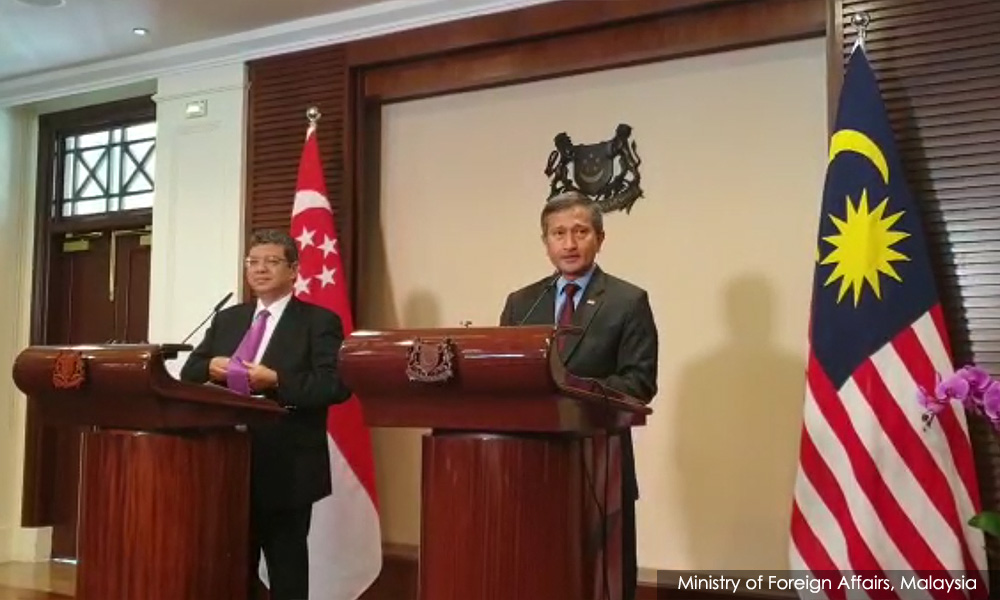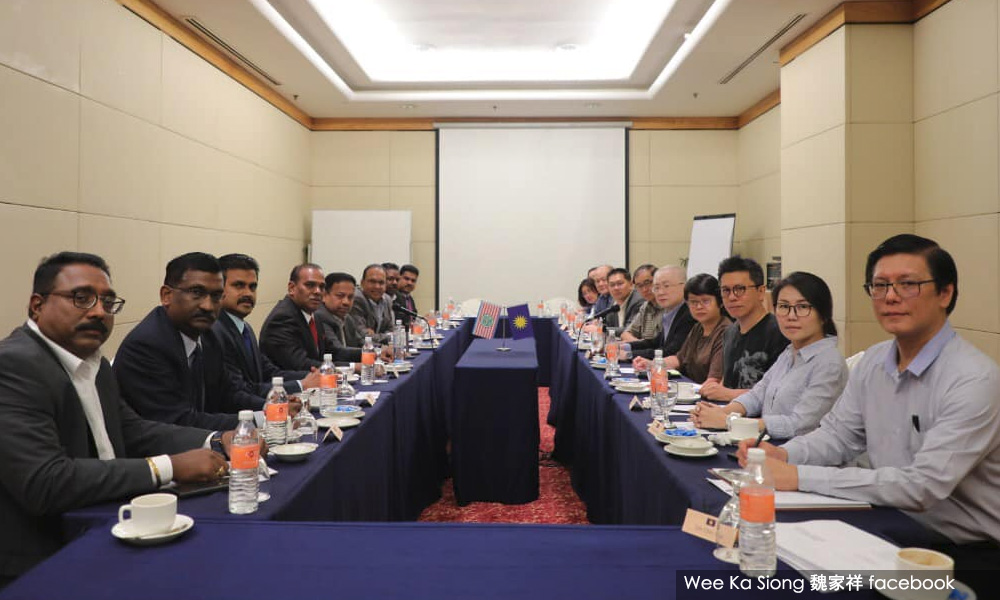
Published by EMIR Research, image from Wikimedia.
On Tuesday (5th March, 2019), the Special Cabinet Committee (Steering Committee) to Review the Malaysia Agreement 1963 (MA63) met for the second time.
The two hour meeting produced several working papers, almost all of which are to be referred to the ‘Technical Committee’ for an in-depth study before they are discussed in the next meeting.
After the meeting, Sabah Chief Minister Shafie Apdal said he was confident the Prime Minister would take steps towards the realisation of MA63 but admitted that both sides were still locked in negotiation.
Right after Shafie Apdal made his post-meeting statement, Parti Solidariti Tanah Airku (STAR) President Jeffrey Kitingan voiced some strong criticisms, stating that the federal government should start implementing the Malaysia Agreement 1963 (MA63) and Sabah’s rights under the Federal Constitution. He said:
“What is there to negotiate? MA63 was concluded and signed in 1963. After more than a half a century, it has remained unimplemented and not complied with.”
“Non-compliance by the federal government had made the agreement “illegal” and called for a new agreement to better reflect the needs of the current situation and the expectations and aspirations of the people.”
“Fifty-five years of non-compliance is long enough for an unimplemented agreement to become null and void. Sabah and Sarawak have suffered long and hard enough by being treated like colonies, with our sovereignties being usurped by Kuala Lumpur and Malayan Political parties.”
Promise 40: Implement the 1963 Malaysia Agreement
In ancient times, basic forms of cooperative agreements must have evolved in order to foster trust, cooperation and partnership formation. One basic form of such cooperative agreements are promises, which might in fact constitute the precursor of enforceable contracts in contemporary times. Thomas Baumgartner et al in an article entitled ‘The Neural Circuitry of a Broken Promise’defined promises as one of the oldest human-specific psychological mechanisms fostering cooperation and trust.
In Buku Harapan: Rebuilding our Nation Fulfilling our Hopes, there are five pillars. The fourth pillar is “Return Sabah and Sarawak to the Status Accorded by the Malaysia Agreement 1963”, and under this pillar, there are 8 promises made by Pakatan Harapan.
Furthermore, Enforcing the Malaysia Agreement 1963 is something Pakatan Harapan promised to do within the first 100 days. “The Harapan Tracker” has been set up to monitor and keep the government in check and as of now, item AO8 which is to ‘Enforce the Malaysia Agreement 1963’ is set as ‘in progress’.
As a Sabahan following developments in my homeland, I must say that there is a dire need to change ‘in progress’ to ‘completed’.
An urgent need
Earlier this year, a local political party in Sabah has claimed that Sabahans are disappointed and dissatisfied with the performance of Warisan state-led government. Sabah Progressive Party (SAPP) vice-president, Gee Tien Siong claimed that:
“A lot of people are confused. Actually, what are they doing now? People are also asking this. Even with the Malaysia Agreement 1963 (MA63) special committee, Warisan seemed to be at loss as to what to do or how to get back Sabah’s right as promised.”
“Perhaps MA63 was too big for Warisan as they could not even settle simple problems that affected the people’s daily lives such as potholes on roads in commercial and residential areas. The conditions of public roads have gone from bad to worse.”
Water shortages, the maintenance of public roads and the lack of electricity supply are vital ongoing issues in Sabah. As 2020 is around the corner, it is disturbing and unbelievable that these are still issues.
It is unfair to be discussing outlandish plans for a flying car when our Rakyat from some parts of our country are still struggling to get water to bathe with, to travel to work or school on a decent road, or even have enough light at night for children to study – much less have internet access.
Another growing issue is the matter of oil royalty. The federal government has been giving Sabah only 5% of oil royalty since 1976. However, the MA63 stated that Sabah, which is an oil producing state, was entitled to 20% of oil royalty. Kemabong assemblyman Jamawi Jaafar very recently reminded the Prime Minister to honour the rights of Sabahans.
The Pakatan Harapan promise is to implement MA63 is a very specific promise, and MA63 very specifically states that Sabah should receive 20% of its oil royalties.
If there is any reason why this promise is being delayed, don’t Sabahans and Malaysians deserve to know why?
Setting Priorities
If Pakatan Harapan is serious about fulfilling its manifesto promises, it is important for the Cabinet to focus and prioritise on what is need to be done now.
I propose the following measures:
- Cater the rural basic needs first and foremost – Water, Electricity, and Public Roads – in areas of Sabah that need it the most
- Don’t let identity politics pollute Sabah. We don’t want to adopt the Peninsula’s political patterns, and we don’t want to start having racial tensions at all.
- Return to Sabah what belongs to Sabah. Rectify the rights of Sabah and Sarawak to revenue from their natural resources such as oil and gas, as stated on page 89, Buku Harapan, under promise number 40.
The Prime Minister, in his latest tweet and in line with Tuesday’s meeting said that the Cabinet is revising the implementation of MA63.
In real life, one reason for keeping promises is to facilitate the future cooperation of potential exchange partners. However, we also believe that humans often keep promises because this is ‘‘the right thing to do.’’
Whether for the first reason or the second, millions of Sabahans and Sarawakians are now looking to the federal government in Peninsular Malaysia to see if they are indeed men and women of their word.
Dayang Shuzaidah Abduludin is Research Analyst at EMIR Research, an independent think tank focused on strategic policy recommendations based on rigorous research.

